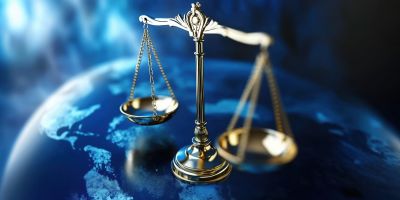The Trump Documents Case Should Not Have Been Dismissed, says law prof
By Gregory Germain, Professor of Law, Syracuse University College of Law
Donald Trump and his associates were charged with stealing, mishandling, concealing, and lying about classified government documents taken by Trump on his way out of the White House. Judge Eileen Cannon dismissed the case, claiming that Special Prosecutor Jack Smith’s appointment was unconstitutional. Cannon may well be right in holding that Smith’s appointment was unconstitutional, but she was not right to dismiss the case.
Jack Smith was appointed to be Special Prosecutor by Attorney General Merrick Garland under a Justice Department regulation that has been in effect since 1999, and is substantively identical to regulations that were in effect for decades and during the Nixon Watergate case, which was prosecuted by outside Special Prosecutor Leon Jaworski. The Supreme Court affirmed the trial court’s decision in United States v. Nixon, 418 U.S. 683, 694 (1974), noting that Jaworski had been appointed under the DOJ’s regulation. No prior court has taken seriously a challenge to a special counsel’s appointment under the special counsel regulations.
In 2019, two law professors published a law review article arguing that it was unconstitutional under the appointments clause for the Attorney General to appoint an outside special counsel, in that case Robert Muller, who had not been confirmed by the Senate. See Steven G. Calabresi and Gary Lawson, Why Robert Mueller’s Appointment as Special Counsel was Unlawful, 95 Notre Dame L. Rev. 87, 115–16 (2019). These law professors gave Judge Cannon the legal firepower to argue that Jack Smith’s appointment violated the appointments clause of the Constitution.
Is Judge Cannon right that Jack Smith’s appointment was unconstitutional when so many other courts have turned a blind eye to the argument? Calabresi, Lawson and Cannon have a colorable argument that Smith’s appointment violated the appointments clause of the Constitution. The appointments clause requires the President to appoint, and the Senate to confirm, all “Officers of the United States,” except for “inferior Officers” who can be appointed by others without Senate approval if they are authorized by law to make the appointment. U.S. Const, Art 2, Sec 2. Cls 2.
The Courts have recognized, however, that mere “officials” and “employees” can be hired without authorizing legislation, presidential appointment or Senate approval. The distinctions between “Officers,” “Inferior Officers,” “Officials” and “Employees” is not defined in the Constitution, and depends on factors like power, authority, control, and permanency.
Jack Smith claimed to be an “Inferior Officer” appointed under law by Attorney General Garland, who is an Officer appointed by the President and confirmed by the Senate. Judge Cannon held that the legislation cited for Smith’s appointment does not apply, and suggests that the broad unsupervised powers given to the Special Counsel might make him a “Superior Officer” who must be appointed by the President and approved by the Senate. The legality of Smith’s appointment turns on the uncertain characterization of his role, and the application of the laws authorizing his employment as an “inferior officer.”
So will the appellate courts agree with Judge Cannon’s determination that Smith’s appointment was unconstitutional? Ultimately, until the Supreme Court decides the case there is no way to know. There are good arguments on both sides, and the issues are clouded by vague language and a long and inconsistent practice history.
However, there is good reason to suspect that the current Supreme Court will affirm Judge Cannon’s conclusion that Special Counsel Jack Smith’s appointment was unconstitutional. Justice Clarence Thomas asserted as much in his concurrence in the presidential immunity case, Trump v. United States, ____ U.S. ____ (July 1, 2024), and the breath of that immunity decision suggests that this Court will take an extremely broad view in separation of powers cases, and will likely demand Senate approval for government agents, like the Special Counsel, who are given broad unsupervised authority to exercise government power.
If the Court accepts Judge Cannon’s argument, does that mean all of the prior special counsel cases will now be invalid? While it would mean that all of those decisions brought by outside special counsel were wrongly decided, it does not mean that those wrongly decided cases are now invalid. In general, court decisions that become final (by not being appealed, or by affirmance on appeal) are valid and enforceable, even if the decisions are later proved to have been wrong. Court decisions must be attacked on appeal, and can generally not be “collaterally attacked” in another court, even if the decisions were wrong. See United Student Aid Funds, Inc. v. Espinosa, 559 U.S. 260 (2010).
An exception to the rule prohibiting collateral attacks applies when the court lacked jurisdiction to issue the decision, but the problem here is not the court’s lack of jurisdiction but the prosecutor’s lack of authority. The jurisdiction exception should not apply. So no, Richard Nixon would not be able to get his Watergate tapes back if Judge Cannon’s decision is affirmed. Sorry Richard.
But even if Judge Cannon’s reasoning is upheld, her disposition of the case was wrong. Dismissal is an extreme remedy that should not be used when well-settled law, that has been reasonably relied on for decades, is overturned, and where the defendants’ rights would not be materially harmed by the technical deficiency that previously occurred. Rather than dismissing the case, the Court should allow the Justice Department to fix the technical problem.
Professors Calabresi and Lawson argued in their law review article that the appointments clause defect could be easily cured by appointing another “Officer,” like one of the United States Attorneys, who has been appointed by the President and confirmed by the Senate, to supervise Jack Smith’s work on the case.
If that was done, dismissal would only be appropriate if the defendants were somehow prejudiced by Smith’s wrongful appointment. Everything that was done by Jack Smith in the case could have been done by Jack Smith under the supervision of a United States Attorney. The technical defect in Smith’s appointment, which was easily curable, did not prejudice the defendants. There is no reason that a United States Attorney appointed to supervise the case now could not ratify Smith’s past work, and allow Smith to proceed with the prosecution. A case prosecuted by Jack Smith under the supervision of the United States Attorney would be like the thousands of cases brought by Assistant United States Attorneys every day in every jurisdiction. Without proof that the defendants were severely prejudiced by this technical appointments issue, the extreme remedy of dismissal was totally unwarranted and should be reversed on appeal.


